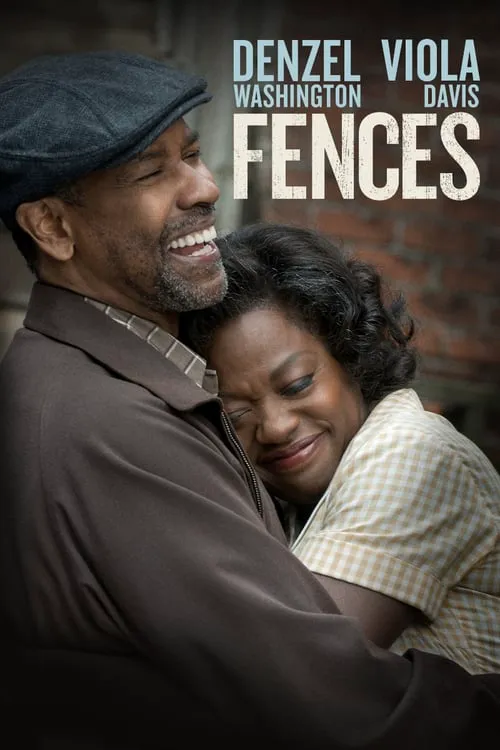Fences

Plot
Set in the tumultuous era of 1950s Pittsburgh, Fences is a poignant and powerful drama that delves into the intricacies of the African-American experience. Directed by Denzel Washington, the film boasts a rich narrative that explores the complexities of fatherhood, racism, and the human condition. The story revolves around Troy Maxson, a working-class African-American father portrayed by the incomparable Denzel Washington. Troy is a former boxing champion who now toils as a garbage collector, barely scraping by to provide for his family in one of the city's impoverished neighborhoods. Despite his efforts, Troy's life is marred by poverty, racism, and his own bitter resentment towards the systemic injustices that have stunted his potential. Troy's relationship with his wife, Rose (Viyella Alford), is complicated and loving yet strained. Rose, played by Viola Davis, is a quiet, stalwart presence in Troy's life, often mediating between his fiery temper and the expectations of their family. The couple has two children, a teenage son, Cory (Jovan Adepo), and Lyons (Russell Hornsby), Troy's older son from a previous marriage. However, Troy's strained relationship with his sons is a recurring theme throughout the film, as he struggles to impart his values, morals, and understanding of the world. The film's central plot is centered on Troy's decision to prevent Cory from playing football, citing a policy barring African-American players from the sport. This incident sets off a chain reaction of conflicts within the family, as Troy's authoritarian nature clashes with his sons' desire for independence and self-expression. The rifts between Troy and his sons are exacerbated by Troy's deep-seated frustrations with society, which he often directs toward his loved ones. His anger and pain become increasingly palpable, causing tension and emotional distress for those around him. As the story unfolds, we witness the intricate dynamics of the Maxson family and the community they inhabit. Rose's quiet strength and wisdom provide a respite from Troy's turmoil, while Cory's idealism and determination to challenge his father's worldview serve as a catalyst for change. Meanwhile, Lyons' character adds a poignant layer to the narrative, highlighting the complex relationships within blended families. One of the most poignant aspects of Fences is its nuanced portrayal of the African-American experience in post-war America. The film humanizes the struggles of the era, revealing the harsh realities of segregation, racism, and economic inequality. Troy's story is a powerful allegory for the collective pain and suffering that many African-Americans endured during this period. Through Troy's journey, we witness the devastating consequences of systemic injustice and the resilience of a people determined to overcome adversity. Denzel Washington's masterful performance brings depth and nuance to Troy Maxson. Washington's portrayal of a flawed yet relatable character resonates deeply with audiences, evoking a range of emotions from anger to empathy. Viola Davis, alongside Washington, delivers a performance of comparable magnitude, capturing the complexities of Rose's character with a quiet intensity. The rest of the ensemble cast, including Jovan Adepo, Russell Hornsby, and Stephen McKinley Henderson as Troy's brother, Bono, add depth and richness to the narrative. In a remarkable display of cinematic storytelling, Fences is a cinematic adaptation of August Wilson's Pulitzer Prize-winning play of the same name. Wilson's powerful script brings the world of 1950s Pittsburgh to vivid life, offering a poignant exploration of the human condition. With its outstanding performances, masterful direction, and poignant storytelling, Fences is a sweeping drama that will leave audiences moved, disturbed, and ultimately, transformed.
Reviews
Recommendations




